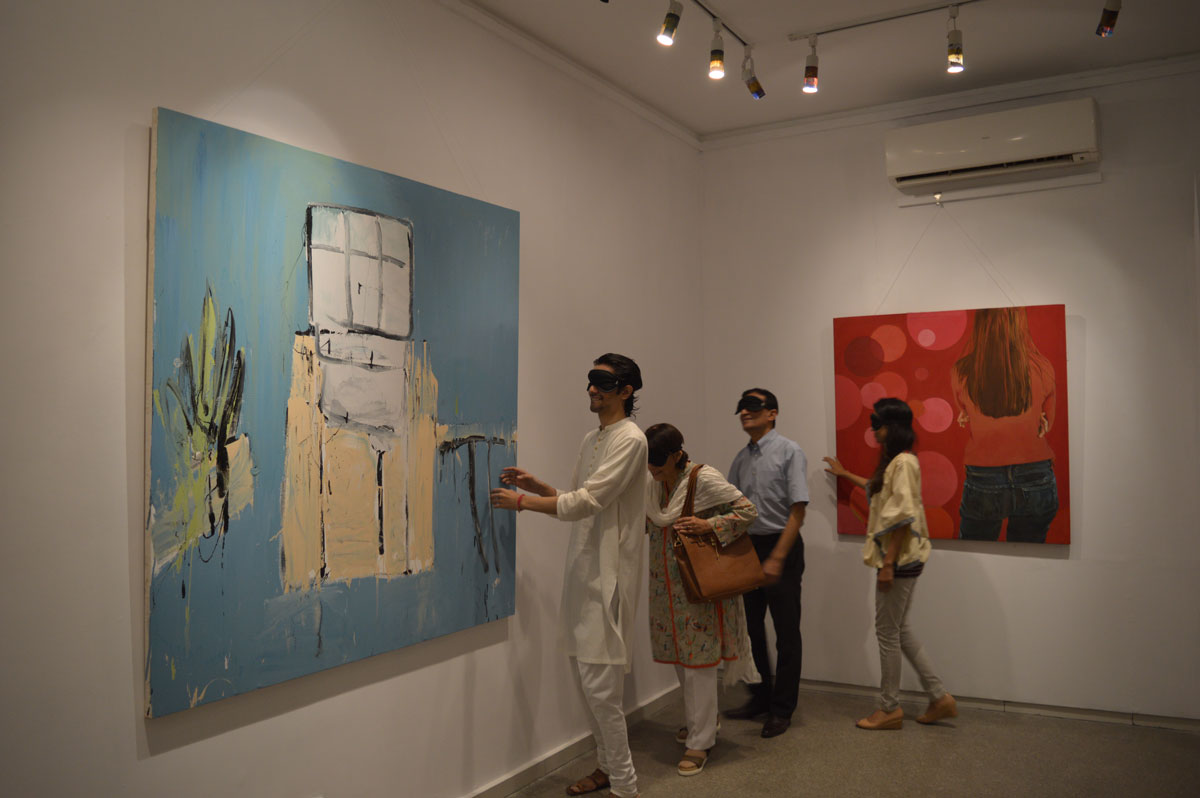Quddus Mirza
Born in 1961 in Lahore (Pakistan)
Lives and works in Lahore (Pakistan)
Quddus Mirza is an artist, art critic and independent curator. He is the Head of Fine Arts Department at the National College of Arts Lahore, where he obtained his BFA, before acquiring MFA (Painting) from the Royal College of Art, London. Mirza has shown extensively in numerous group exhibitions, nationally and internationally, along with several solo exhibitions, held in Pakistan and the United Kingdom. He has also curated a number of exhibitions; including “Trade Union” and “Take Away’ at Zahoor ul Akhlaq Gallery, National College of Arts, and “One to One” at Alhamra Art Gallery Lahore. His other exhibitions include “Celebrating Art” and “Love” at National Art Gallery, Islamabad, “Beyond Borders: Art from Pakistan” at National Gallery of Modern Art in Mumbai, India, and “Exotic Bodies”, based on the miniature paintings from the collection of Victoria and Albert Museum, that was displayed at Preston Museum in UK. Mirza is an art critic with a regular weekly column appearing in one of Pakistan’s major newspapers, ‘The News’, and a regular column on art, Letter from Pakistan, in ‘Art India’ and in ‘Depart’ (Bangladesh) as well as contributing to other publications, such as: ‘Dawn’; ‘Herald’; ‘Himal’; ‘Libas’; ‘Contemporary’; and ‘Flash Art’. He is the co-author of the book 50 Years of Visual Arts in Pakistan and has written essays extensively on Pakistani art in different international catalogues and other publications. He is also the editor of online magazine ‘Art Now Pakistan’. Mirza applies his interdisciplinary approach to his art practice, which explores the violence, terror and fear that surrounds us, both externally and internally. His work is a byproduct of our collective fascination with violence - manifested in our domestic behavior, our attitude towards others, and in the ghoulish preponderance of reportage and footage of violence in our media. As Mirza himself states: “My work deals with these issues of our times, and place.”
In Mirza’s performative work for the Karachi Biennale 2017, entitled WIT-NESS, violence does not merely manifest itself in the subject matter, concern or imagery but in the actual process of experiencing the work, embodying the force, shock, power and pleasure usually associated with the acts of violence. The omnipresence of violence often desensitises us, as viewers, to its sanguinary reality. Hence, in his three-hour long performance, Mirza has taken away the viewers’ sense of sight by requesting them to put a strip of cloth over their eyes, before entering the gallery space, and having a sonic indication of the location of the exit. In doing so, the sensory experience of the viewer becomes the integral vehicle for the artwork, which correspondingly transcends the visual, as their physical and metaphorical blindness. To again quote Mirza: “The experience of spending a brief time inside the exhibition, without literally witnessing anything may create a sense of fear of the unknown, unusual and unexpected – elements, which for me, are essential components to elevate an object/entity into the work of art.”

WIT-NESS, 2017.
Site specific performance
120min

